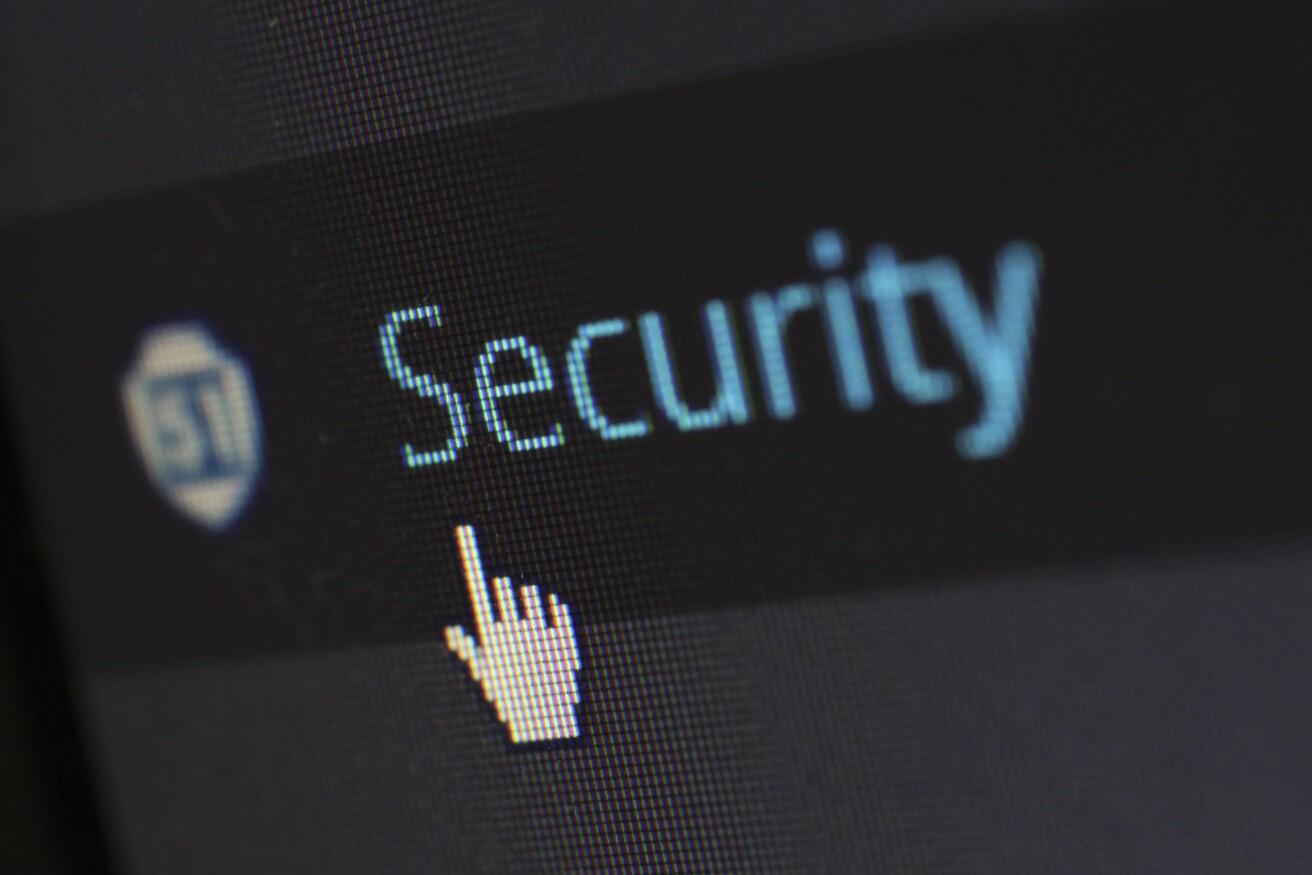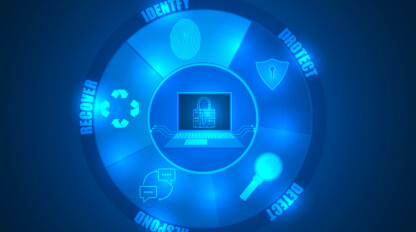Protecting Your Business: Why Cybersecurity Is Important for your Business

What is cybersecurity?
Cybersecurity, simply put, is the practice of protecting every corner of your business. From your software to your network to all the data you have stored in the cloud, everything must be carefully guarded. Cybersecurity encompasses every barrier put in place to distance a device or service from cyber attacks and threats.
At ivision, cybersecurity combines security assessment, security engineering and security strategy to offer comprehensive, lasting protection for your business. With in-depth offerings, like continuous penetration testing, red-team assessments, threat modeling and security roadmaps, we help protect your business from all angles. In addition to investing in our own workforce to earn new security certifications, we partner with industry-leading businesses with the latest and greatest security expertise to complement our offerings.
Why is cybersecurity important?
In today’s society, we are chronically online. We use technology in nearly every facet of our day-to-day lives. Whether it’s logging into our work computer in the morning, watching your baby nap on the monitor or setting your alarm at night, technology has become deeply integrated into how we operate. As our identities become increasingly online, we become far more vulnerable to cyber threats.
Cybersecurity is important because it helps protect the online identities of ourselves, our peers and our clients. It’s woven into every IT decision a business makes, and it’s constantly being revisited as new threats emerge. Without cybersecurity, our work emails would be publicly available, our children’s naps could be monitored from anywhere within the network and our home security cameras could be disabled with the click of a button. Understanding the importance of cybersecurity and emphasizing that importance cultivating a culture of security awareness within our organizations is crucial.
In addition to our own personal and professional identities, our reliance on cybersecurity goes as far as keeping us fed and clothed. The supply chains that we rely on for our basic necessities are all managed through information technology, meaning they’re at risk for being compromised by bad actors. By understanding and prioritizing cybersecurity as a society, we help protect ourselves from these vulnerabilities.
Why are cyberattacks increasing?
As our digital identities grow, the amount of our critical information online grows with it. This leaves more points of entry for bad actors to obtain that critical information, and these methods of entry are becoming more complex by the day. With the obtainment of this critical data, bad actors gain the upper hand over businesses, gaining leverage, money and status. There has become increased profitability and ease of commerce in the darkest corners of the web, making it a more desirable form of crime.
Social engineering is one tactic that bad actors are relying on, and it’s becoming increasingly popular on social media. On both personal and professional platforms, accounts are being created to mimic real people or fabricate identities completely. These accounts are being used to gain trust from other users, and with that trust they’re gaining credentials, personal details and access to accounts on other profiles. Be on the look out for these characteristics to increase your safety when using social media.
In addition to attacks on individuals or businesses, attacks on governmental infrastructure have risen as a threat, and the cyber component of conflict has reared its ugly head. The Russia-Ukraine conflict is a prime example how cybersecurity ties into governmental infrastructure, and many businesses took effective preventative measures to avoid getting caught in the crossfire of cyberattacks. The conflict led to an increase in state-sponsored hacking, hacktivism and black hat threat actors. Critical infrastructure and financial organizations were being particularly targeted and remained on high alert for DDoS attacks, data wiping attacks, espionage, defacement of websites and disinformation attacks.
What are some different types of cybersecurity threats to look out for?
There is no shortage of different types of cybersecurity threats, and the first step to protection is awareness. By understanding and being able to identify the security threats below, you’re better equipped to combat them.
Phishing
Many organizations facilitate some kind of security training for employees, and one of the biggest components of this training is often phishing tactics. We receive so many emails and forms of communications a day that sometimes we operate on autopilot when reading and responding to them. While this may seem like a harmless symptom of “a case of The Mondays,” it can prove quite dangerous if the wrong email winds up in your inbox.
Phishing attempts come in the form of emails, text messages, voicemails or any other form of virtual communication with the intention of deception. These communications will disguise themselves as a message from someone else, often someone you know from work or your personal life and will do its best to extract information from you, whether that be log-in credentials, payment details or classified information.
It’s imperative that employees within an organization be on the lookout for these attempts and know the common characteristics. Phishing attempts are often riddled with spelling or grammatical errors, come from invalid email addresses and/or have attachments that can’t be previewed. Raising awareness about these simple clues can save your business a lot of time, money and reputational damage.
Malware
Malware is the umbrella term for attacks that involve viruses, spyware and other malicious software. It can be delivered as an attachment in a phishing email, serve as a pop-up on a website or come across in a number of other deceptive ways. Once the malware is installed, it can block access to resources, cause business disruption or extract information from your data storage. Mobile malware is also on the rise, delivering malicious software through applications or updates.
Ransomware
Ransomware is a form of malware that essentially takes an organization’s data hostage. In order to get the data back, a business must pay an exorbitant amount. Without a proper cybersecurity budget or protocol, this money comes out of other areas of the business, putting the company at serious financial risk. Some ransomware attacks include a leak of the acquired data to the public, leading to even further costs in government fines and repairing reputational damage.
Data Breaches
Data breaches essentially guarantee a leak of an organization’s sensitive data to the public, which can be for a number of reasons. Bad actors can be motivated by cybercrime, like identity theft, or a desire for humiliation of a certain organization. Regardless of the motivation, data breaches leave businesses extremely worse off than they were before, suffering severe reputational damage, loss of clientele and hefty fines.
Password Attacks
Password attacks are commonly discussed and are the reason most of us have several variations of each of our passwords. They’re the reason your business makes you change your password every 90 days or include an uppercase letter, special symbol and number. While these details may seem annoying at the time, they’re detrimental to your organization’s security. These kinds of attacks rely heavily on human error, and granting access to one bad actor opens up the floodgates to a slew of lasting issues.
Password management tools can aid in remembering which passwords belong to which platforms, how often they need to be changed and if they’ve been subjected to a password leak.
How can a cyberattack impact your business?
Cyberattacks can negatively impact your business from a number of angles, but perhaps the two biggest impacts are financial loss and reputational damage. Expectedly, these go hand in hand, making it difficult to bounce back from a cyberattack quickly.
Economic cost can be surrendered in the case of intellectual property or sensitive corporate information being stolen, business disruption caused by a security incident and repairing of any damaged systems or equipment as a result.
Reputational damage can lead to further economic cost, directly impacting your sales pipeline and potentially losing key business relationships and partnerships. It also can result in loss of customer trust, poor media coverage and a decline in competitive advantage. To counteract this reputational damage, you may have to boost your advertising and public relations budget to try to regain your status in the industry.
In addition to economic costs and reputational damage, your business could face regulatory cost. Every business must follow General Data Protection Regulation (GDPR) and other data breach laws. Being the victim of a cybercrime can put your business at risk of violating these laws and being charged regulatory fines or sanctions. ivision offers thorough Cyber Governance, Risk & Compliance (GRC) expertise to help combat this possibility.
How to protect your business from a cyber attack
Luckily, there are a number of ways you can help protect your business from the lengthy list of cyber attacks above. Each business will have different needs, crown jewels and priorities, but the following methods have proven successful in adding an extra layer of security to your organization.
- Encouraging strong, unique passwords for each employees’ various online accounts
- Update computer operating systems in a timely manner
- Install anti-virus software across all business devices
- Educate employees on different kinds of cybersecurity threats and how to prevent them from infiltrating the organization’s environment
- Promote extra layers of cybersecurity for remote workers and on-premise devices, like multi-factor authentication
Should I hire a cybersecurity expert to help?
Cybersecurity is an increasingly complex and specialized topic, making it difficult to maintain the necessary manpower and skillsets in house. By having a designated partner to manage and maintain your cybersecurity, your business gains time back to focus on what matters most: your customers. Managed service providers, like ivision, serve as an extension of your team to offer security solutions that best fit your business model and protection needs.
Additionally, over the past eight or nine years, we’ve seen a 350% deficit in security roles. This leaves many CISOs and other security professionals tasked with running the shop while managing strategy at the same time. Investing in a cybersecurity expert fills this gap and leaves your leadership team time to grow the business without having to worry about the daily operations and nuances of cybersecurity.
What are the benefits of investing in cybersecurity?
Investing in cybersecurity is crucial for any growing company. As business booms, so do the threats. By having a defined cybersecurity strategy and partnering with trusted subject matter experts, you put your business in a better position to ward off cyber threats and bad actors.
Despite the indisputable value that cybersecurity offers a business model, some leadership teams may need some convincing the include it into the annual budget. Combating this mindset can be accomplished in three steps:
- Quantify the business value versus potential business loss.
- Quantify the cost to implement the security initiative.
- Calculate the ROI on the prevention of loss.
To learn more about obtaining security-focused funds and showcasing projected ROI, watch this video from our Chief Technology Officer, Eric Aslaksen.
How ivision can help you with your business’s cybersecurity
ivision has invested heavily in cybersecurity expertise, tools and continuing education to help keep our clients’ environments safe. We offer full lifecycle cybersecurity services that identify & quantify internal & external risks, develop & mature your security posture and respond & recover continuously. Our offerings are broken into four categories to serve your business at every step: plan & assess, detect & protect, respond & recover and manage. Within each category we provide specialized offerings that will help protect your business for years to come.
Our end-to-end solutions are comprehensive and flexibly delivered to meet global enterprise needs at all levels of program maturity. We deploy DevSecOps with our deep engineering expertise augmented by a broad industry perspective. We put our core principles into action to enable client success and earn their partnership for life.
We’re continuing to grow our Cybersecurity Practice by building our ranks and evolving our solutions to meet client needs. You can learn more about the growth of this practice in our discussion with ivision CEO, David Degitz, and ivision CIO-in-Residence, Mark Husnick. To get connected with one of our security experts and start strengthening your organization’s security posture, contact us today.



